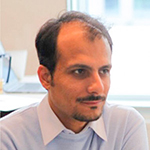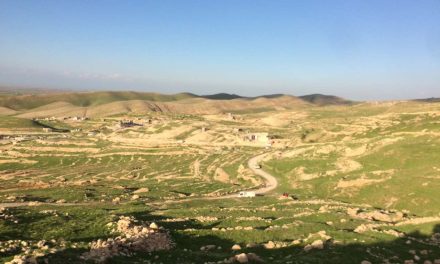The Iraqi armed forces achieved one of the greatest military victories in recent history, and many Iraqis sacrificed their lives to defeat ISIS, one of the biggest threats to world peace. Nevertheless, the unjust media campaigns against the Iraqi Security Forces (ISF), and more specifically the Popular Mobilization Forces (PMF), which, ironically, are often spearheaded by Iraq’s supposed allies, never stopped.
Realistically speaking, one should not be surprised by the attacks against the PMF. Taking into consideration that it effectively disrupted many political equations and military balances in the region, the PMF will certainly become a target. Some Iraqi academics and commentators are perfectly able to assess the situation of the PMF in a balanced and thorough way. It is important to discuss the future of the PMF without shying away from some healthy and much needed constructive criticism. However, the debate surrounding the PMF today is dominated by people with political agendas whose ultimate goal is stoop very low when tackling the issue of PMF in the media.
It is astonishing how often the arguments used to criticize the PMF defy logic, not to mention represent uninformed commentary. For instance, administrative and institutional challenges are misinterpreted and exaggerated to make them seem as if they were unique to the PMF only, to justify dissolving it. Any other organization around the world with similar circumstances would have suffered from similar, if not worse problems.
From an organizational perspective, the development of the PMF does not follow ordinary patterns. The PMF was formed in very difficult circumstance in 2014 when about one third of Iraq was under the control of ISIS. In a matter of days, hundreds of thousands volunteered to join the PMF after the famous fatwa issued by the highly influential Grand Ayatollah Sayed Ali Al-Sistani.
When the PMF started to take part in the battle of liberating Iraq, it was facing enormous administrative and logistical challenges. The majority of the PMF members not only did not have enough training and arms, they were fighting without being paid salaries for months.
Nevertheless, in a matter of a short time the PMF stepped up and immediately started to make a significant difference in the war effort. Soon, it became a decisive factor in either achieving or enabling the victories against ISIS. Today, the PMF is regarded as one of the bravest, most effective battle-hardened anti-terror forces in the Middle East.
Organizational ecology concerns itself with the age and population of organizations. While organizations take many years to grow in terms of membership, capacities, and responsibilities, the pace in which the PMF developed taking into consideration its mission and circumstances is uncommon. Three years in the life of an organization is not substantial. Any organization younger than five years is regarded to be in the ‘infancy’ phase and suffers naturally from instability and ineffectiveness. Nevertheless, we saw the PMF achieve world-level military feats.
Furthermore, one of the most important procedures in building an organization is the selection process. Security organizations around the world are specifically strict when it comes to membership criteria, something the PMF did not have the luxury of when it was established. The imminent challenge was to stop ISIS from advancing at any cost. Hence, quantity and speed had higher priority over quality and thoroughness.
The exponential growth of the PMF into a staggering 130,000 organization whose members hail from different denominations and backgrounds within a few months posed serious organizational and administrative concerns. Developing the mission, procedures, and the suitable structures of an organization requires more time, effort, and focus than the PMF ever had when it set out to face a highly organized and ruthless enemy.
This growth of the PMF within a very short time also represents a challenge in relation to ‘organizational culture’, something that is often under-appreciated. Organizational culture represents the collection of values, norms, styles, and the mentality that guides the decision-making process in an organization, and inspires the approaches based on which things are achieved. In other words, it is ‘the way work gets done’ in any given organization.
The evolution of organizational culture is slow and extremely complicated, especially with organizations like the PMF that encompasses people from different origins, backgrounds, and perspectives. The PMF combined the military wings of different political parties and movements, each with its own agenda and aspiration, along with the tribal forces who have their own sets of values and norms, and the ordinary volunteers to whom life in a military organization is probably new and hence require extensive socializing and training to fit in. A common organizational culture plays an important role in integrating all these different individuals and groups into one impactful entity. Therefore, organizational culture represents a serious topic in well-established military organizations all around the world, not to mention young [and large in the case of the PMF] ones that need a lot of time and dedication to overcome the many hurdles towards achieving coherence and effectiveness. The PMF did not have the chance to develop all that when it was formed, as it had to partake in the fiercest battles imaginable.
The PMF as an organization requires a lot of work and modification. Based on many surveys conducted around the world however, a brutal 60-70% of all change efforts in organizations fail, and it is getting worse. This rate is certainly going to be higher when we are discussing a security apparatus in a developing country that was recently formed, facing the most dangerous terrorist organization in the world, and where nothing less than the future of a nation is at stake. Hence, it would be foolish to conduct deep reforms beyond what is necessary. Existential battles are not the right time for perfectionism when the imminent goal is to survive. Therefore, it was natural that most of the reforms would be postponed to more stable times.
Hence, it is fair to say that the evolution of the PMF was by all standards extraordinary and that its problems are the norm not the exception. The topmost issues the PMF is being criticized for are the problems of loyalties, the absence of coherency in the organization, and the lack of discipline amongst its ranks. Based on an organizational perspective, most of these are in reality related to the underdevelopment of culture, structure, processes, and selection that are to be expected given the history of the PMF. Only recently has Iraq reached the level where ISIS does not pose an imminent threat to its existence, and were the government can realistically address these issues. Hence, with enough time, effort, and resources, the PMF’s natural and expected problems can be resolved.
Needless to say, biased analysis does not want us to believe the PMF can be fixed and will continue its call to disband it completely. Dissolving however is not only unrealistic, it would be a mistake and hence not an option. The PMF is here to stay, ensuring that the events of 2014 will never happen again. Those who have a problem with that will continue to complain no matter what. Those who care about the security and stability of Iraq however will rationalize and enrich the debate about the future of the PMF with some balanced assessments and expert opinions, something that should be welcomed and encouraged by Iraqi decision makers.
The PMF is neither above the law nor beyond reform, just like any other institution in Iraq. Believing and acting upon that does not undermine the PMF and its sacrifices, but is necessary for its sustainability and strength. No matter what is being said about the PMF, the fate of this organization is and should remain in the hands of Iraqis who appreciate its efforts and realize its deep strategic importance.

Muhammad Al-Waeli
Muhammad Al-Waeli is an Iraqi commentator on political and social issues. He is currently doing a PhD in Human Resource Management and is interested in politics, media, and development.










